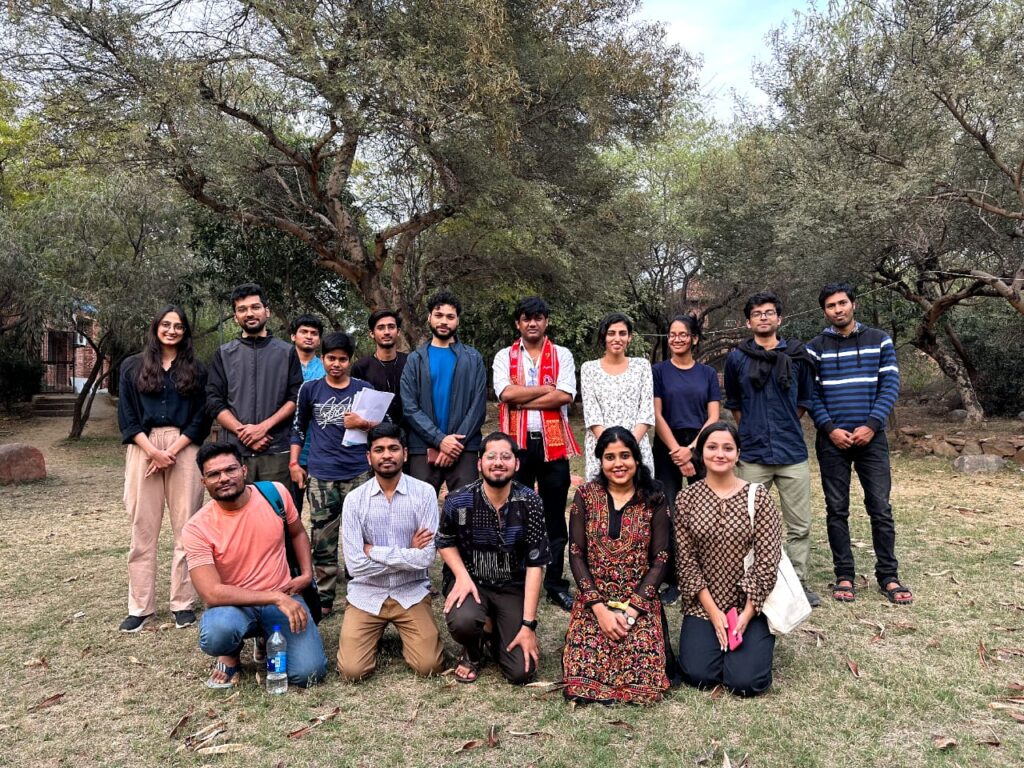
This blog provides discussion highlights for Sunday IR Cafe #45. Conducted on 19th February 2023, the discussion covered The Limits of Decolonisation in India’s International thought and Practice.
Core Arguments:
- As an introduction to a special journal issue, the paper seeks to unsettle the prevailing approach to looking at India’s engagement with the international which regards decolonisation as a moment of rupture. The editors, instead, argue for looking at the elements of continuity in anti-colonial thinking as well as diplomatic practices that informed India’s internationalist engagement in post-independence years. The binary of national and international spaces also requires a re-examination in light of the spatial reconfigurations imagined in pan-Asian/pan-Islamic thought as well as India’s administrative engagement with the borderlands.
- Martin Bayly’s paper on the colonial-era Indian IR knowledge production commmunities shows that India’s engagement with the international interfaced with modernist and imperial structures and was entangled with the global process of knowledge systemisation. Raphaelle Khan’s research on the Indian Institute of International Affairs shows how Indian activists reappropriated colonial structures of knowledge and expertise in service of emancipatory political goals. Her work also problematises the nationalist vs imperial think-tank binary between ICWA and IIIA.
- Vineet Thakur’s study of Srinivasa Sastri and G S Bajpai’s interwar conferencing as intrepid proto-diplomats underscores the continuity between colonial and independent India’s foreign policy apparatus. Their diplomatic sojourn served as a pedagogical exercise as well as reflected India’s enhanced autonomy in international affairs. On the other hand, Berenice Guyot-Rechard’s work on the diplomat Apa Pant underscores the tension between managing the Indian diaspora in East Africa who were prejudiced against the locals and India’s claim to championing the cause of African decolonization. The lofty rhetoric here increasingly came in conflict with New Delhi’s imperative of placating the diaspora. Similarly, Avinash Paliwal’s research on the role of Indian spies in establishing the Ghanian intelligence agency underscores the continuation of the imperial administrative sinews in contrast to the Bandung spirit of postcolonial solidarity.
Discussion:
- In positing a direct connection betwen India as a postcolonial nation-state and the colonial-era British Raj, its predecessor political formation in the years prior to independence, the paper falls into a teleogical trap even though it talks about avoiding such a linear reading of the formation of India’s engagement with the international. Prior to independence, India as a nation-state did not exist; there were multiple contingent possibilities and contrasting visions. Also, later developments, such as the partition of the subcontinent and the formation of Bangladesh, were completely unexpected and were not envisioned at all or until very late in years of colonial rule. So, we should be attuned to the nuances in terms of positing a direct link between colonial-era engagement with the international and what happened in terms of postcolonial India’s engagement with the international.
- In response, one could argue that while the contours of India as a nation-state was shaped by unanticipated geopolitical and political developments, there did exist something called India in the shared imagination of the intellectual elites even in the colonial period. In their shared but also contrasting visions of the eventual possibility of India as a nation-state, we can make an attempt to find a blurring of the boundary between the imperial and postcolonial India’s engagement with the international. It is in this context that the paper’s enterprise makes sense. Moreover, at a technical level, it has to be pointed out that even though India was a colony run by the machinery of the British-Indian Raj, it existed as an anomalous actor in international forums. India’s very amorphous positioning as an international actor was seen in its participation in the League of Nations, International Labor Organisation, and conferences like the Washington Naval Treaty and Bretton Woods. As Vineet Thakur has shown convincingly, Indian proto-diplomats were not the mere appendages of the Raj in the international arena. Rather, they used these forums to push for their autonomous vision for India as an actor on the international stage.
- In thinking of the issue of continuity and change in the context of India’s decolonial turn after 1947, we would also do well to appreciate the Indian agency and voices that went into the making of independent India’s foreign policy. Even though the Indian republic inherited the institutional apparatus, personnel and everyday habits of foreign policy department from the British Raj, it did not necessarily led to a continuation in the policy. India’s non-aligned posture in the Cold War, for instance, is a clear manifestation of the exercise of Indian agency, marking a break from the colonial-era policy. As a counterfactual exercise, it can plausibly be argued that a British India administered in the interest of Whitehall might have picked up the Western side in the Cold War instead of going the non-aligned way.
- Hence, ultimately, the debate on the issue of continuity and change has to be settled by focusing our inquiry to specific issue-areas. It might likely be the case that, in some respect, independent India exhibited a continuity of sorts with the imperial predecessor, while in other instances, decolonisation marked a fundamental shift in the policy approach. Further, when we talk of a continuity between the colonial and post-independence phase, the focus should not only be on the ideational and institutional drivers, be it in terms of administrative apparatus or visions of India’s place in the world. Some of the continuity can be explained with reference to structural factors, including geography, demography, system-level power distribution, and threat perception, etc.
- On the wider issue of the decolonisation debate in India, sections of both the Indian right and left have come to repudiate the inheritance of colonial modernity. It is indeed the case that the modern state that the colonial Raj brought had a predatory/extractive aspect to it. The Raj also deployed knowledge/information generation techniques in service of imperial policy. However, we should be cautious in throwing the baby out with the bathwater. While we can make all the counterfactuals about the possibility of an indigenous turn to modernity, possibly under a Maratha tutelage on lines of the Meiji Restoration (Indian Right) or come up with the postmodern schemes to trascend the nation-state (Indian Left), the fact remains that the refashioning of the apparatus of the modern state in service of citizens presents the most viable route to prosperity and India’s rise as a great power. And, in thinking of the decolonisation debate, we should be cognizant of this inheritance from the Raj, which complicates the binary black and white understanding of that period.
(Discussion Transcript and Editing by Sanjeet Kashyap)

